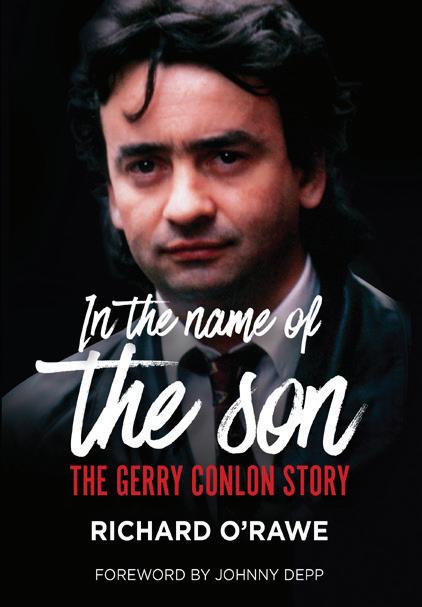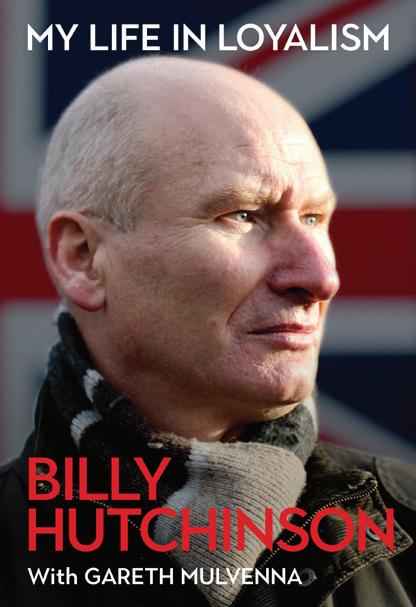NEW T IT LES













 SIOBHÁN DOYLE
SIOBHÁN DOYLE
The Gaelic Athletic Association is a huge part of the Irish consciousness and plays an influential role in Irish society that extends far beyond the sports. In popular imagination and experience, the GAA is often evoked in terms of its objects: medals passed down from generation to generation, jerseys worn in All-Ireland finals, Michael Cusack’s blackthorn stick, a pair of glasses damaged during the events of Bloody Sunday.
This fascinating book offers a new perspective on the GAA by presenting a range of objects from every county in Ireland, as well as overseas, to create a history of the GAA that also functions as a history of the people that have been involved in it: players, administrators, referees and supporters.
From a fifteenth-century horse-hair to a tweed camogie dress, Trevor Giles’s sleeveless jersey and Brian Cody’s baseball cap, all corners of the GAA world, personal and official, are explored and celebrated in A History of the GAA in 100 Objects.
Siobhán Doyle is a cultural historian and works in the National Museum of Ireland. She holds a PhD in Museum Studies from Technological University Dublin and has lectured in Design History. Siobhán is from Co. Wexford and has studied and worked in museums in Dublin for ten years. This is her first book.






Abandoned Ireland travels the length and breadth of the island of Ireland visiting and documenting our forgotten buildings, highlighting their social importance, and bringing their stories back to life through the medium of photography.
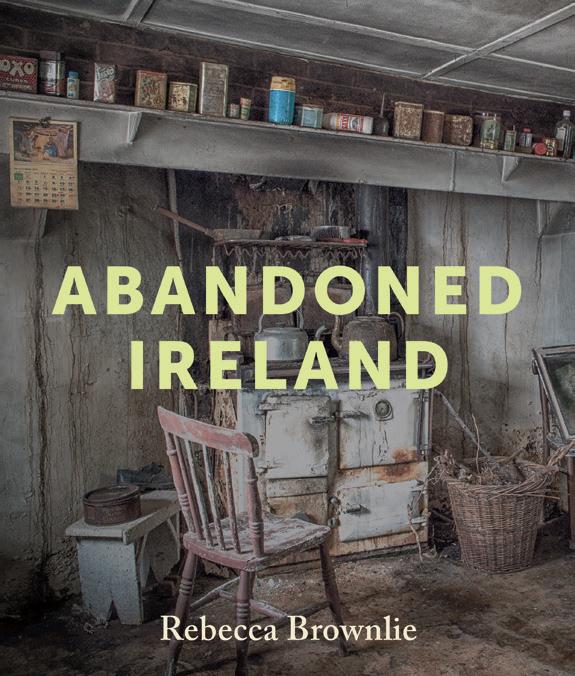
From Big Houses to humble cottages, schools to prisons, churches to dance halls, these buildings may now be abandoned, but they are far from empty. As a photographer, Rebecca Brownlie’s instincts are remarkable. In the seemingly ruined and mundane she finds diamonds in the rough; her images of the ordinary ephemera of past lives – dusty love letters, rusting spectacles, photographs yellowed and curled with age – paint pictures of real people and full lives.
Rebecca Brownlie’s photography reverberates with the echoes of our ancestors. Bursting with engaging and often surprising details, each haunting photograph is an invitation to immerse yourself in history, and an Ireland long gone.
Rebecca Brownlie grew up in a small rural village in County Down. Her passion for abandoned buildings and love of photography have led her to appear on several television shows and her work has appeared in the national media.




In autumn 2021, veteran Irish journalist and broadcaster Charlie Bird publicly announced that he has motor neurone disease. Despite this devastating diagnosis, he knew that he wanted to do something to help others, and so he decided to organise a charity climb of Ireland’s famous Holy Mountain, Croagh Patrick. Little did he know then that he would create a national event and raise almost €3 million for charities close to his heart, Pieta and the Irish Motor Neurone Disease Association.

On 2 April 2022, Charlie completed the momentous challenge, cheered on by family, friends and famous faces including Ryan Tubridy, Daniel O’Donnell, Dermot Bannon and Barry McGuigan. And the action was not confined to Croagh Patrick; supporters the length and breadth of the country, and around the world, came out in their thousands to climb their local peaks in a breathtaking show of solidarity. For Charlie, the experience was nothing short of spiritual.
This book is a joyous record of that unforgettable, emotional day, and a deserved celebration of determination, generosity and community.
Charlie Bird is one of Ireland’s most well-known journalists and has had a long and distinguished career in Irish Public Service Broadcasting. He spent over thirty eight years working in RTÉ and held a number of positions including Chief News Reporter, Chief News Correspondent and Washington Correspondent.
‘Climb With Charlie was an event that will live in my memory for as long as I live.’
this deeply divided island ever be one?

Malachi O’Doherty’s ground-breaking new book explores this salient question and many more. Considering centuries of history alongside contemporary issues, he looks for answers by talking to those who know the island best: those who live there. By doing so, O’Doherty produces the most comprehensive picture yet of a divided nation and its uncertain future.
This book asks the big political questions about the prospects of reconciliation between North and South, but it also goes behind the upfront attitudes of parties and factions to ask what really drives people’s sense of who they are, and whether a more inclusive national identity can be reached.
Can two parts of a partitioned island put the legacy of the freedom struggle behind them, and if so, how would they jointly define Ireland’s sovereign national character? In Can Ireland Be One? O’Doherty confronts the real-world implications of this incendiary debate.

Malachi O’Doherty
and broadcaster based in Belfast,
a frequent contributor to several radio programmes as a respected commentator on Northern Ireland.
for the Belfast Telegraph
On 13 March 2017, the Rescue 116 crew of Capt. Dara Fitzpatrick, Capt. Mark Duffy, Paul Ormsby and Ciarán Smith took off from Dublin airport just after 11 p.m. for a medical evacuation off the west coast of Ireland. The first indication of disaster came when the crew failed to answer a radio call at 12.46 a.m. Shortly after 2 a.m. on 14 March, sister helicopter Rescue 118 spotted a casualty and debris in the water. There would be no survivors from R116, and extensive searches failed to locate the bodies of two of the four crew.

The crash occurred just six months after the loss of experienced Irish Coast Guard volunteer Caitríona Lucas, from Doolin Coast Guard in Co. Clare, and eighteen years after the loss of four Air Corps crew who were returning from a night rescue in thick fog off the south-east coast.
In Search and Rescue, Lorna Siggins exposes the shocking systemic flaws that led to these tragic deaths, but also looks at successful rescues where, despite all the odds, the courage and dedication of members of the Irish Coast Guard, Air Corps, RNLI, fishing crew and the volunteers who work with them have saved countless lives.
Lorna Siggins is a former Irish Times journalist and has been reporting from the west coast for over twenty years, focusing on marine affairs. She has reported from the first successful Irish expedition to Mount Everest, from Antarctica, from the African and South American continents, and she is author of several books.


This is the gripping inside story of Sean Quinn, Ireland’s bankrupt billionaire, who went from rags to riches, then gambled his fortune on Anglo Irish Bank shares and became the world’s biggest personal loser of the economic collapse of 2008.
A millionaire by thirty, Quinn became an almost mythical character, creating thousands of jobs at a time when the shadows of mass unemployment and the Troubles loomed over the Irish borderlands. However, after four decades of unparalleled success, Quinn’s business empire imploded.
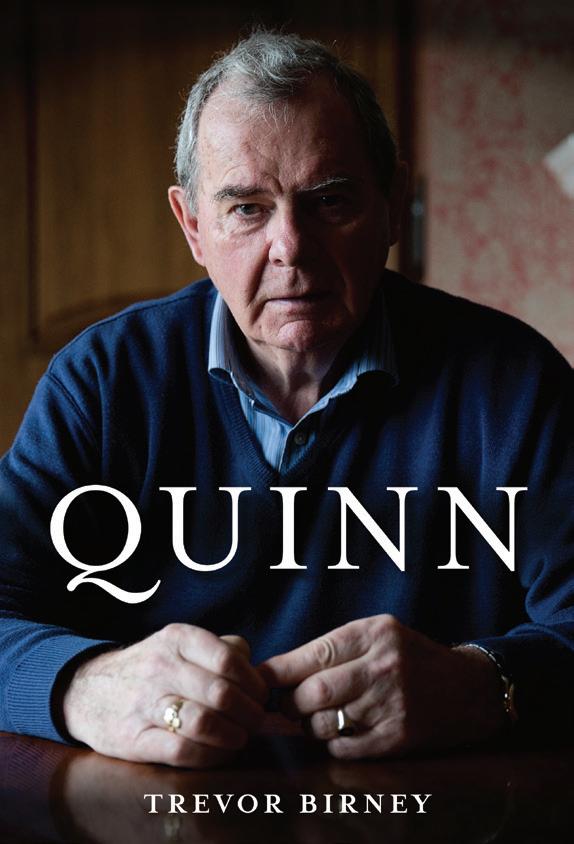
The atmosphere in ‘Quinn Country’ turned ominous. Violence and intimidation flourished, helping bring part of his business back under local control, with Quinn as consultant. However, what seemed like a ‘second coming’ soon turned toxic. Rifts in the boardroom between Quinn and his former executives, men he had once prized for their loyalty but now blamed for the loss of his companies, ended with Quinn’s final ousting. Further violence followed, culminating in the horrific attack on his former righthand man, Kevin Lunney, an event that would end even local support for Quinn. His empire was gone.
Ten years after losing it all, Quinn is a brooding figure, refusing to accept any blame for his final downfall. This is the truly remarkable story of the man everyone said was too big to fail.
Trevor Birney is an Emmy-nominated film producer, director and journalist. In 2017 he produced the groundbreaking documentary No Stone Unturned, with Barry McCaffrey, about the 1994 murder by UVF gunmen of six Catholics in Loughinisland, County Down. Their work resulted in their wrongful arrests by the PSNI, who later paid the producers significant damages.
Richard Harris is indisputably one of Ireland’s greatest ever acting legends. The star of This Sporting Life, The Field and Harry Potter and the Philosopher’s Stone –to name but a few of his acclaimed hits – he was as famous for his off-screen antics as those on screen.
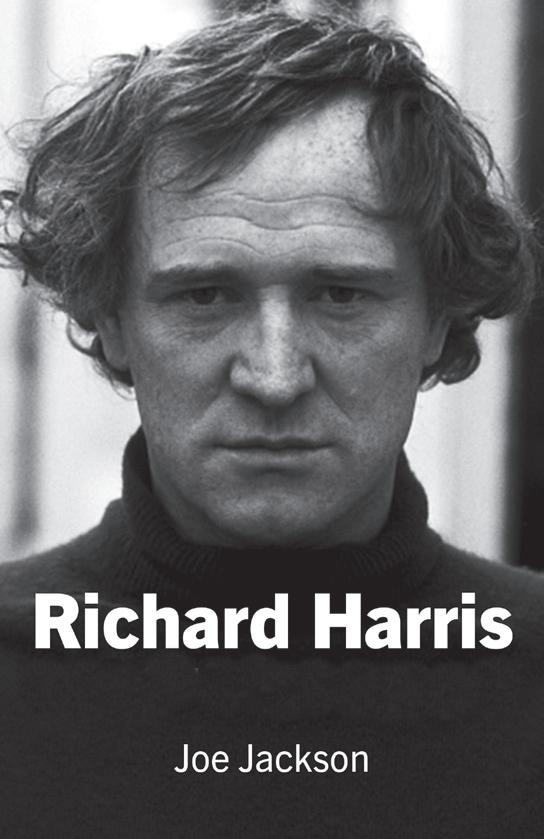
Notorious for having an insatiable lust for life (and women) and a fiery personality, when Harris first met Irish journalist Joe Jackson in 1987, they almost came to blows, but before the interview ended, they had become firm friends. Harris understood that Jackson wanted to unearth deeper truths about him than he usually disclosed during interviews. Jackson told him, ‘I want to show the public there is far more to you than your superficial image as a boozing, brawling womaniser.’ Harris loved this idea. Later in life, he’d grown reflective; his image didn’t sit well with him. And so he asked Jackson to write his biography. This is that book.
Based on extensive taped interviews Jackson and Harris recorded between 1987 and 2001, and with the support of the Harris family, this is the story of the great Richard Harris told in full for the first time, and in his own words, twenty years after his death.
Joe Jackson has written for all major media outlets in Ireland, including The Irish Times, Sunday Independent and RTÉ Radio 1. His interviews have been published globally in magazines such as Playboy, Rolling Stone and Hello. His books include Nanci Griffith’s Other Voices In 1989, Richard Harris asked him to become his official biographer.



Colin Bateman grew up in the pleasant seaside town of Bangor in Northern Ireland. Ten miles away, the IRA, the UDA and the UVF were blowing Belfast apart, but he was more concerned with making his first million through the GBA – the Gerbil-Breeding Association (sadly short-lived when his gerbils turned out to be cannibals).
Inspired by All the President’s Men and The Odessa File to become a crusading journalist, Bateman joined the local paper when he was a seventeenyear-old punk, where instead of bringing down Presidents and finding Nazis, he found himself being hunted down by the notorious Kilcooley Strollers, a dance troupe with an axe to grind.
So close to the Troubles, yet so far away – Thunder and Lightning is the story of one boy’s journey through the rather soft side of life in a town which lacked tough streets but boasted many cul-de-sacs. A town where an occasional terrorist bomb was seen as an opportunity to profiteer and where his father became a paramilitary by accident.
Colin Bateman is the author of more than thirty novels, including Divorcing Jack, Mystery Man and I Predict a Riot. He wrote the screenplays for the film version of Divorcing Jack, and also for the movies Crossmaheart, Wild About Harry, The Journey and Driven. In 2010 he was made an Honorary Doctor of Letters by the University of Ulster, for his Services to Literature.
troubadour, an honest man, fearless and
inspiration
that’s

sings and plays,
Crazy Dreams is the compelling and highly anticipated autobiography from Paul Brady, a musician whose remarkable career has spanned six decades and who is indisputably one of Ireland’s greatest living songwriters.

This evocative memoir chronicles Paul’s many years at the forefront of the Irish folk scene, from The Johnstons and Planxty through to his seminal work with Andy Irvine and onwards to his own vaunted solo career. Along the way are the many encounters and collaborations with such musical luminaries as Bob Dylan, Eric Clapton, Carole King, Tina Turner, Mark Knopfler and Bonnie Raitt, to name but a glittering few.
Paul has carved out his own unique place in Irish musical history. In Crazy Dreams he tells how it was done and regales the reader with remarkable stories of life on the road and the journey from small-town Tyrone to the world stage.
Paul Brady, singer, songwriter and multi-instrumentalist is one of Ireland’s most enduringly popular artists. Born in Belfast and raised in Strabane, he was interested in music from an early age and joined the Irish ballad group The Johnstons, with whom he recorded seven albums. Paul Brady continues to push out the boundaries not only of his own talent but of Irish
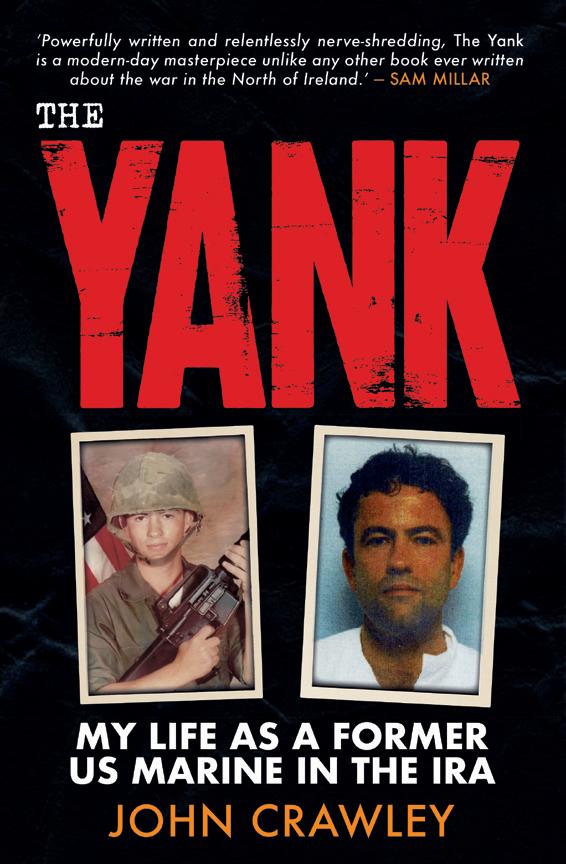
The year is 1975. A young Irish-American is on a mission to enlist in an elite unit of the US Marine Corps. His goal: to receive the most intensive military training possible and then go to Ireland to join the IRA and fight to end the British occupation of the North.
In this powerful and brutally honest memoir of his extraordinary experiences, John Crawley details the gruelling challenges of his Marine Corps training, and how, not long after his discharge, he joined the IRA. Soon he found himself in Boston, working with notorious mobster James ‘Whitey’ Bulger to amass a shipment of weapons. When captured on the Marita Ann gun-running trawler, Crawley was imprisoned for ten years, and upon his release he became one of the masterminds behind the IRA’s plan to throw London’s electrical system into disarray.
Crawley is blisteringly candid about the people he worked with and unflinching in his commentary on the IRA leadership. Through it all comes the steadfast voice of a man on a mission, providing an evocative and passionate account of where that mission led him and why. To this day, he remains committed to the establishment of an all-Ireland Republic.
Crawley is a former Sergeant in the US Marine Corps and a former Irish Republican Army volunteer. Born in New York to Irish immigrant parents, he moved to Ireland as a young teenager and returned to America
training
order


‘As a reporter, he listened to the heartbeat of the Troubles. A difficult and carefully told tale, carried out with humanity.’

In Living With Ghosts renowned veteran journalist Brian Rowan retraces his steps through Northern Ireland’s conflict years, as he bravely delves into the darkness of those times. His story takes us beyond the often strict boundaries of the news into the very real dilemmas and fears behind its scenes.

In his journalistic career Rowan walked the thinnest of lines, where morals and principles were blurred, and as a result his mind became tortured. This book is an explanation, not a confession.
He goes deep into his contacts with the IRA, the loyalist organisations, MI5, Special Branch, the army and the many other players in the conflict period. And he joins the dots on a path out of ‘war’ in a place that has not yet found peace of mind.
Rowan thinks and writes inside a moral maze, and in this book he invites us into his nightmares of remembering and to times he will never forget. Living with Ghosts is a moving and deeply personal account of one man’s doubts and decisions, and the challenges of reporting a war on his doorstep.
Brian Rowan is a former Security Correspondent for BBC NI. Since the late 1980s, he has reported on all the major developments on Northern Ireland’s journey from war to peace. He still comments and writes regularly on the issue of legacy and on the questions relating to the conflict period. Living With Ghosts is his seventh book.
‘This is a towering work … a brilliantly forensic and startlingly objective account of the ways that sport at once transcends, debases and delineates our humanity. [Coakley] is firmly and undeniably in the inner circle of the great sportswriters.’

The Game is a multifaceted reflection on sport. It is part memoir, outlining Tadhg Coakley’s time as a player and a fan, and how sport has shaped his life. But it also tackles sport on a universal scale – the good and the bad.
For fans, sport can be all-consuming and in our modern world we are consuming sport in ever greater quantities, often blindly. Sport also has a dark side; it is rife with corruption, racism, sexism, homophobia, nationalism and a raft of toxic masculine behaviour. At the same time, sport builds diverse positive connections and communities, and in sport – as in art – people can forge their own identities with grace, imagination and the possibility of what may be. This duality is one of the most fascinating aspects of sport.
Written with warmth, openness and keen insight, The Game is an entertaining and thought-provoking meditation on the uniquely intense highs and lows of loving sport in today’s world.
Tadhg Coakley is from Cork. His debut novel, The First Sunday in September (2018), was shortlisted for the Mercier Press Fiction prize. His second, Whatever It Takes, was chosen as the 2020 Cork, One City One Book. Coakley writes about sport for the Irish Examiner.

 GEORGE HAMILTON
GEORGE HAMILTON
‘… David O’Leary is entrusted with the responsibility of taking the penalty that could send Ireland to the quarter finals of the World Cup. This kick can decide it all. The nation holds its breath … It’s there!’
Written with his trademark warmth and candour, The Nation Holds Its Breath is George Hamilton’s wonderfully told journey through a rich and varied career in broadcasting.
As the undisputed voice of Irish football, George’s evocative and celebrated commentary is familiar to millions. He has captured the highs and lows of Irish sport for generations of fans, ever since he first took up the microphone in the mid-seventies, and he has been enthralling his audiences ever since.
To read George’s writing is to hear George’s voice and the reader will be captivated from the very first page, as he takes us on an affectionate journey from the Cregagh Road in East Belfast to an emotional farewell salute from Big Jack Charlton on the hallowed Anfield turf in 1995. The destinations – Stuttgart, Genoa, New Jersey – will be familiar, the journeys in between, anything but. A mustread memoir from one of Ireland’s truly undeniable national treasures.
George Hamilton has captivated Irish TV and radio audiences for decades. Written in his inimitable style, this is a lyrical journey through his life and career. In the voice that is so familiar to millions, he tells the story of his formative days in Belfast, his early career in London, and his eventual arrival in Dublin and RTÉ.


This searingly intimate literary debut from top Irish art critic Cristín Leach weaves words and art with an unravelling of self that comes when a marriage
In a multi-layered and incisive narrative, Leach writes about the gaps between reality and perception, about writing and anxiety, body and brain, breaking and making, succeeding and failing.
The non-linear structure of Negative Space, with repeats, retakes, and details deliberately left unsaid, mimics the gaps in memory and understanding that are part of the human condition, especially during times of great stress. It’s about art and writing as a fundamental way of explaining and understanding the world, perhaps saying what cannot be said, or revealing without showing.
Negative Space is about writing and the expression of art as a salve and a means of escape, marriage as a refuge and a trap, the nature of home, and what happens when everything falls apart.

Cristín Leach is The Sunday Times Ireland’s longest-serving art critic. She has written about art for the paper
2003. She is a writer and broadcaster,
personal essays

Tales from the Fraud Squad takes the reader on a journey from Willie McGee’s childhood in Mayo to the mean streets of Dublin as a fresh-faced officer in the late seventies, before he rose through the ranks to become Head of the Fraud Squad.

Equally well known for his heroics on the football field, Mayoman Willie ‘Four Goal’ McGee depicts a host of colourful characters – the con artists and tricksters he encountered in the line of duty – and paints a vivid picture of the murky underworld of Ireland in the 1980s and ’90s.
This book is packed full of extraordinary stories of elaborate forgeries, outrageous insurance scams and inventive crimes, along with the ingenious and meticulous attention to detail with which officers amassed evidence and brought the perpetrators to court. McGee writes fluidly and incisively, and tells his story with an open-hearted charm and warmth.
Whether dealing with a common criminal or a former Taoiseach under the spotlight of a tribunal, McGee was unwavering in his quest for the truth. As he succinctly puts it, ‘Money is never free and those who were caught paid a severe price for thinking that it was.’
Willie McGee first made national headlines in 1967, scoring four goals in an All-Ireland under-21 football final for Mayo. He went on to play for the Mayo senior team for many years; he was awarded the Garda Sports award in 2014, and the Western People Hall of Fame award in 2017.
‘O’Callaghan’s diary powerfully and touchingly conveys the destructive impact of war on adolescents … She has made an important contribution to the documentary record of the conflict’

‘Compelling and alive … Belfast Days remains essential reading’
Belfast 1972. It’s the bloodiest year of the Northern Irish ‘Troubles’ and sixteen-year-old Eimear O’Callaghan bears witness in her diary. What follows is a unique and at times disturbing insight into the life of an ordinary teenager coming of age in extraordinary times. The immediacy of the diary entries is complemented by the author’s mature reflections upon rediscovering her journal forty years later. The result is poignant, shocking, wryly funny and, above all, explicitly honest.

As Northern Ireland continues to be haunted by the legacy of its turbulent past, Belfast Days demonstrates how one person’s examination of her own story gave her a new perspective on one of the darkest periods in twentieth-century British and Irish history.
Eimear O’Callaghan is a former BBC news editor with more than 30 years’ experience in print and broadcast journalism. While most of her career was with BBC Northern Ireland, she also worked with The Irish News and with RTÉ in Dublin. She left the BBC in 2010 to set up a communications consultancy, Leapfrog Communications, and continues to work as a freelance writer.
Edition
‘Moving, funny and bleak by turns, there is nothing sentimental about it’

‘Beautifully crafted – lively, elegant ... A classic memoir’
‘Not a wet miserable childhood, à la Frank McCourt, but a Protestant childhood and one that makes for hugely enjoyable reading’

It is the 1950s, and in the sprawling farmhouse of Rathcormick, near Athboy in County Meath, little Homan Potterton is growing up with his seven older siblings, his beloved Mamma and his somewhat distant Papa. His is a modest, hard-working and happy Protestant family, but Homan is a whimsical, bookish child who often feels like an outsider. From his unique perspective we learn about his life in rural Ireland, family dynamics, and the highs and lows of a fading childhood.
Charming, touching and evocative, Rathcormick is an enchanting love letter to another era.
Homan Potterton was Director of the National Gallery of Ireland (1980–8), and Editor of Irish Arts Review (1993–2002). He published a follow-up memoir, Who Do I Think I Am?, in 2017, and a novel, Knockfane, in 2019, both with Merrion Press. Potterton passed away in 2020.
‘

Here now I tell my story, showing my understanding, reaching out, being respected, so people can listen to my turmoiled world. My thoughts unfurled on each page of my life story.’
Fiacre Ryan’s story is compelling. He was the first non-verbal autistic student to sit the Irish Leaving Certificate, achieving honours marks in Maths, English, History and Geography. Yet until the age of thirteen, Fiacre had no means of communicating with his family or the outside world.
Through the introduction of a letterboard designed to help autistic people communicate, Fiacre has subverted all prior perceived limitations of somebody with non-verbal autism. In the process he has unleashed his inner writer to devastatingly beautiful effect, through his remarkable and unique way of combining words and ideas in prose and poetry.
His writing is astonishing, independent from his autism. His poems address his daily experiences, while his commentary showcases his thoughts on the non-autistic world, on how those with autism are treated and his own personal ambitions and dreams for the future.
Fiacre Ryan is a writer. Speechless is his first book and with its publication he will become the first Irish-published author who also has non-verbal autism. He currently lives in Co. Mayo with his family.


The violence and divisions caused by the Civil War in County Kerry in 1922-23 were more vicious, bitter and protracted than anywhere else in Ireland.

For generations, the fratricide, murder and executions in Kerry have been synonymous with the worst excesses of the brutality and mayhem which followed the split over the Anglo-Irish Treaty of 1921.
In this new analysis of the conflict in his native county, Owen O’Shea offers new insights into the misery and mayhem, from the perspectives of combatants as well as their families and the wider civilian population.
Based on newly researched archive accounts and testimonies, the immense trauma, hardship, poverty, ill health and psychological scars of the families of those killed and injured is explored for the first time. Also presented is a catalogue of the intimidation, destruction, crime and lawlessness which severely affected civilians who had no involvement in the war but suffered greatly, sometimes losing their lives.
No Middle Path offers an engrossing account of the terrible events in Kerry and of some of the darkest days in Irish history as well as their shocking and enduring legacy.
Owen O’Shea, from Milltown, Co. Kerry, is Communications Officer with Kerry County Council. He is the author of Heirs to the Kingdom: Kerry’s Political Dynasties (2011), A Century of Politics in the Kingdom: A County Kerry Compendium (Merrion Press, 2018), and Ballymacandy: The Story of a Kerry Ambush (Merrion Press, 2021).


During the Irish Civil War eighty-three executions were carried out by the National Army of the emerging Free State government, including four prisoners not tried or convicted of any charge. After the war the trial records were destroyed and the execution policy became a bitter memory that was rarely discussed. In this groundbreaking work, Seán Enright examines how a climate emerged in which prisoners could be tried by rudimentary military courts and then executed, and how so many other prisoners were killed without any trial at all.
The government of the emerging state relied on the National Army to fight the war and implement policy, but the National Army was new and lacked discipline. More than 125 further prisoners were killed in the custody of the state; shot at the point of capture or killed in custody. ‘Shot while trying to escape’ became an all too familiar press release. Seventeen prisoners were killed in the Kerry landmine massacres alone.
In the struggle to survive, the new state turned a blind eye and the rule of law simply unravelled. Featuring new material from the Irish Military Archives, The Irish Civil War: Law, Execution and Atrocity examines the dark legacy of this chaotic and bitter conflict.
Seán Enright was called to the Bar at Middle Temple in 1982 and at the Four Courts in 1993. He practised at the Bar in London and is now a Circuit Judge. He is the author, with Merrion Press, of The Trial of Civilians by Military Courts: Ireland 1921 (2012), Easter Rising 1916: The Trials (2014), and After the Rising: Soldiers, Lawyers and Trials of the Irish Revolution (2016).

‘A fascinating history of the iconic hotels that became islands of refuge and operational headquarters for the international press covering wars in the late 20th and early 21st centuries.’

War Hotels is an engrossing exploration of hotels in wartime, told through the prism of the now iconic hotels that were frequented by foreign correspondents, politicians, paramilitaries and spies in conflicts in Northern Ireland, Vietnam, Cambodia, Lebanon, Iraq, and Bosnia & Herzegovina. It focuses on the hotels that became closely associated with the brutal conflicts in which they were a part, such as the Europa Hotel in Belfast, the Continental in Saigon, the Commodore in Beirut and Sarajevo’s Holiday Inn.
This book tells the stories of these hotels in fascinating detail, drawing upon in-depth interviews with those who witnessed the tumultuous events that took place in and around the buildings, including Martin Bell, John Simpson, Jonathan Dimbleby, Peter Arnett, Jeremy Bowen and Robert Fisk. By using war hotels as a lens through which to convey the human stories and the conflicts, they provide not only ‘microhistories’, but a rich vein of historical narratives and moving personal recollections.

Kenneth Morrison is a Professor of History at De Montfort University, Leicester, UK, and was the historical consultant for the Al Jazeera series War Hotels
Abdallah El Binni
a Lebanese filmmaker and investigative journalist based in Doha, Qatar. He has covered numerous conflicts as a photojournalist, and he was the executive producer and director of the Al Jazeera series War Hotels
‘

UDR: Declassified has real insight into this entire misbegotten enterprise, credits the excellent work of others that have gone before, and details the very real price people across the six counties and beyond paid for it.’
In UDR: Declassified, Micheál Smith reveals what the British establishment, the British government and its armed forces knew and had to say about the controversial regiment in recently declassified files.
From its formation in 1970 as a locally raised militia, the Ulster Defence Regiment developed into the largest regiment in the British army. For unionists, service in the UDR was a noble act; for nationalists, an encounter with the UDR was frequently hostile, often brutal, and sometimes fatal. To the British army, they were ‘a dangerous species of ally’, a classic militia regiment that played its part in the British Empire’s long tradition of using such forces.
UDR: Declassified is an evidence-based exposé of the UDR using declassified files from 10 Downing Street, the MoD and the NIO. The denial of access to history is a part of continuing efforts by the British state to obscure its colonial past. This book is a testimony to the value of defying such efforts and uncovering the truths behind our traumatic past.
Micheál Smith began his career as a diplomat with Ireland’s Department of Foreign Affairs and Trade. He worked as Irish government observer and a liaison for the families at the Bloody Sunday Inquiry in Derry and London, then for the Pat Finucane Centre. He is author, for the Pat Finucane Centre, of The Impact of the Parachute Regiment in Belfast 1970-73
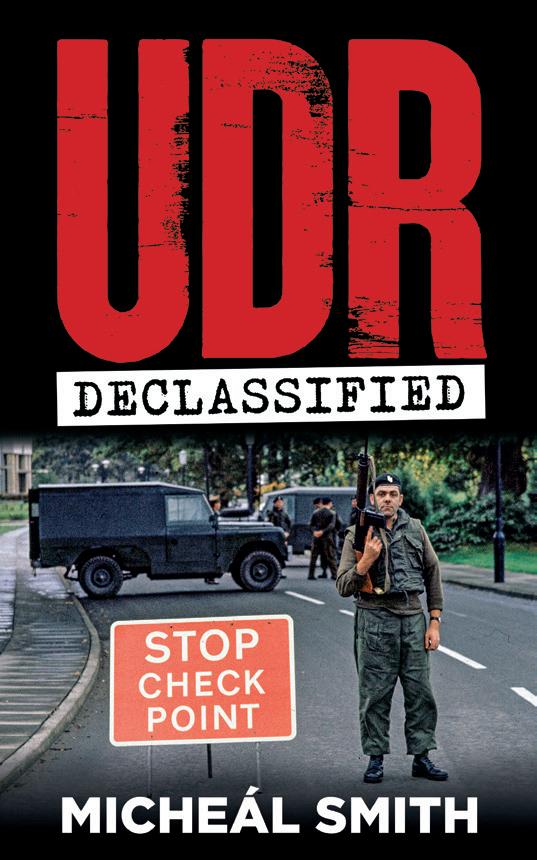
is an original, timely, fresh and significant

Spiritual Wounds challenges the widespread belief that the contentious events of the Irish Civil War (1922–23) were covered in a total blanket of silence. The book uncovers an archive of published testimonies by pro- and anti-treaty men and women, written in both English and Irish. Most of the testimonies discussed were produced in the 1920s and 1930s, and nearly all have been overlooked in historical study to date.
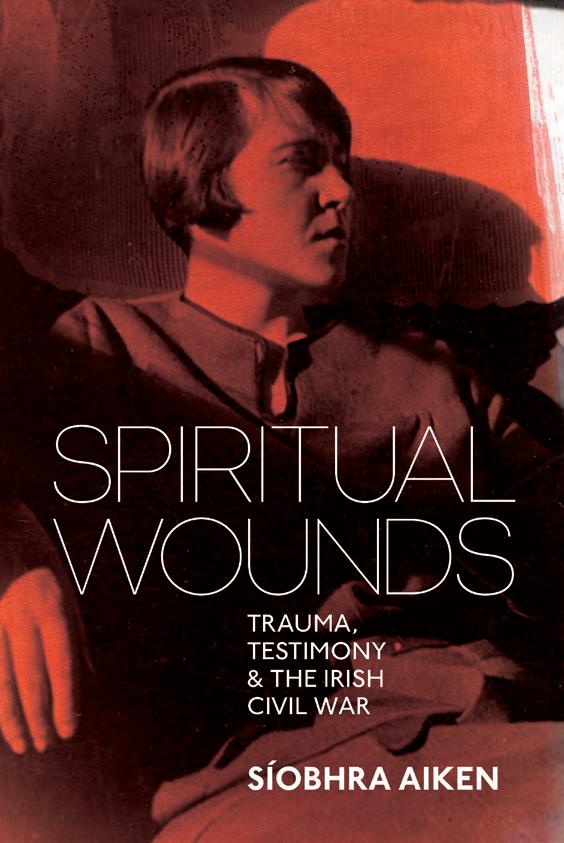
Revolutionaries went to great lengths to testify to the ‘spiritual wounds’ of civil war: they adopted fictionalised disguises, located their writings in other places or periods of time, and found shelter behind pen names. This wealth of published testimony reveals that the silence of the Irish Civil War was not necessarily a result of revolutionaries’ inability to speak, but rather reflects the unwillingness of official memory makers to listen to the stories of civil war veterans.
Aiken is a lecturer in Queen’s University Belfast. A former Fulbright Scholar, her books include The Men Will Talk to Me: Ernie O’Malley’s Interviews with the Northern Divisions (Merrion Press, 2018) and An Chuid Eile Díom Féin: Aistí le Máirtín Ó Direáin (Cló Iar-Chonnacht,

The Kilmichael Ambush of 28 November 1920 was, and remains, one of the most famous, successful –and one of the most controversial – IRA attacks of the Irish War of Independence. This book is the first comprehensive account of both the ambush and the intense debates that followed. It explores the events, memory and historiography of the ambush, from 1920 to the present day, within a wider framework of interwar European events, global ‘memory wars’ and current scholarship relating to Irish, British, oral and military history.
Kilmichael: The Life and Afterlife of an Ambush features extensive archival research, including the late Peter Hart’s papers, as well as many other new sources from British and Irish archives, and previously unavailable oral history interviews with Kilmichael veterans.
There has always been more than one version of Kilmichael. Tom Barry’s account certainly became the dominant one after the publication of Guerilla Days in Ireland in 1949, but it was always shadowed and contested by others, and in this book, Eve Morrison meticulously reconstructs both ‘British’ and ‘Irish’ perspectives on this momentous and muchdebated attack.
Eve Morrison is an Irish historian specialising in the revolutionary period (1916–23) and its social and cultural memory. From 2018 to 2021, she was Canon Murray Fellow in Irish History at St Catherine’s College, University of Oxford.


 EDITED BY OLWEN PURDUE
EDITED BY OLWEN PURDUE
Belfast Charitable Society was established in 1752 with the purpose of raising funds to build a poorhouse and hospital for the poor of Belfast; twenty years later, the foundation stone of the Poorhouse was laid. From here the Society would go on to assume increasing responsibility for a range of matters relating to health, welfare and public order, and its members would play a key part in the civic life of Belfast. It continues to provide vital social services to this day and its Poorhouse, now Clifton House, is still one of the finest buildings in the city.
During the century following the establishment of the Society, Belfast was transformed from a relatively small mercantile town into a major industrial city, a transformation that was accompanied by political upheaval and the major societal challenges associated with rapid industrialisation and urban growth.
Taking as its focus the work of the Society, the global connections that influenced its thinking and the societal issues it sought to address, this fascinating volume provides valuable insights into the wider social, economic and political life of the nineteenthcentury Irish town of which the Society became such an iconic part.
Olwen Purdue is Professor of Modern Social History at Queen’s University Belfast, where she is also Director of the Centre for Public History. She was historical advisor for Titanic Belfast and has made numerous TV appearances in her capacity as an expert on Irish social history.


This is the biography of the father of one of Ireland’s most famous patriots. He emerges from his son’s shadow as a man of deeply held political and religious principles. Born in Newfoundland, Canada, he was to be heavily influenced by his experiences on that rugged island. He settled in Waterford in 1819 and quickly established himself as a champion of political and religious equality.
In 1842 he was elected Mayor of Waterford, the first Catholic to hold this office since the seventeenth century. Meagher served as an MP for the city from 1847 to 1857, and was a determined supporter of an independent Irish party to defend Irish interests at Westminster. A staunch follower of Daniel O’Connell, the age-old conflict between constitutional and revolutionary nationalism in Ireland was played out between him and his son, who was a leader of the 1848 Young Ireland rising. The fascinating and complex relationship between him and Thomas Francis is explored, presenting a very human story against the backdrop of political turbulence.
This book is the study of a man who was a significant representative of the Catholic middle class which helped shape the character of post-Famine Ireland, and who had the unexpected experience of having a rebel in his family.
Broderick is a former secondary school principal, a modern history adviser to the Waterford Museum of Treasures and a Fellow of the Royal Historical Society. He is the author of four books, including John Hearne: Architect of the 1937 Constitution of Ireland


Straw, hay and rushes were utilised throughout the centuries in Ireland for a myriad of uses and practices. In the 18th and 19th centuries travellers to Ireland often wrote disparaging and derogatory accounts of what they saw – saddles of straw, sleeping on rushes, restricting animals with tethers and spancels of bark and animal hair, and wearing crudely-made straw and rush hats. Yet the people who produced and utilized these objects were both ingenious and thrifty, making use of what they could find at no cost and using their skills to make objects which we now see as having not only function, but also beauty.
Anne O’Dowd’s powerful and lavishly illustrated work looks at the historical context of the making of a range of useful and ceremonial objects and the folklore and traditions connected with the materials and practices. The book is beautifully illustrated with colour and black and white images and presents a fascinating insight into Irish crafts and customs.
Anne O’Dowd recently retired from the National Museum of Ireland, where she was a Curator for more than thirty years. She continues to write on Irish folk life and also works on landscape design projects.



This book tells the untold story of the women who were the faces of the British administration in Ireland. As the wives of the country’s viceroys, the vicereines were once the fashionable figureheads of social, cultural and charitable life at Dublin Castle, in the days before Irish independence. Exploring the portraits, papers and personal objects they left behind, this book sets out to recapture their lost legacies.

Fabrics shimmer, flowers blossom and pearls glint in the painted world of the vicereines. But behind these genteel images were activists and advocates who, as the studies in this book reveal, touched almost every facet of Irish life. Campaigns to develop hospitals, relieve poverty, promote Irish fashions, and, remarkably, mitigate what several perceived as the injustices of British rule in Ireland, are just some of their overlooked initiatives. Often sympathetic but sometimes apathetic, the contrasting attitudes of the vicereines suggest a fresh, more inclusive reading of the British administration in Ireland, as viewed not only through its men but also its women.
Featuring essays by leading scholars and based on original sources, including diaries and letters, this beautifully illustrated book brings together text and image to create new and illuminating portraits of forgotten women.
Dr Myles Campbell is now Research and Interpretation Officer (Curator) for the Office of Public Works at Dublin Castle. In 2017 he was co-editor of Making Majesty: The Throne Room at Dublin Castle, A Cultural History (Irish Academic Press), research for which earned him the inaugural George B. Clarke Prize.


For over 275 years, the Rotunda Hospital has been at the forefront of maternity services in Ireland. In Delivering the Future: Reflections of a Rotunda Master, Sam Coulter-Smith celebrates the history of the hospital, with a particular focus on the last thirty years, and explains why voluntary hospitals, with their ability to lead, adapt, research, and provide the best clinical services to their patients, play a vital role in maintaining and improving standards in our health service.
Along with personal stories from a professional life that has revolved around the Rotunda, Dr CoulterSmith explores the recent developments in the Irish hospital service, particularly on the back of the COVID-19 pandemic, and how the independence of Ireland’s surviving voluntary hospitals is being stealthily eroded by current government policy and HSE controls, to the detriment of the entire health service. He also examines what we can learn from how our health service has been managed in the past and questions how we can use this learning to plan for a better future.
Sam Coulter-Smith qualified from RCSI Dublin in 1987. Having completed his undergraduate training in obstetrics at the Rotunda, he did his initial postgraduate training there before moving to the UK. He returned in 1996 as a senior registrar. In 2002 he was appointed as a consultant to the hospital and was elected as master in 2009. He continues to work in the Rotunda as a consultant.









































